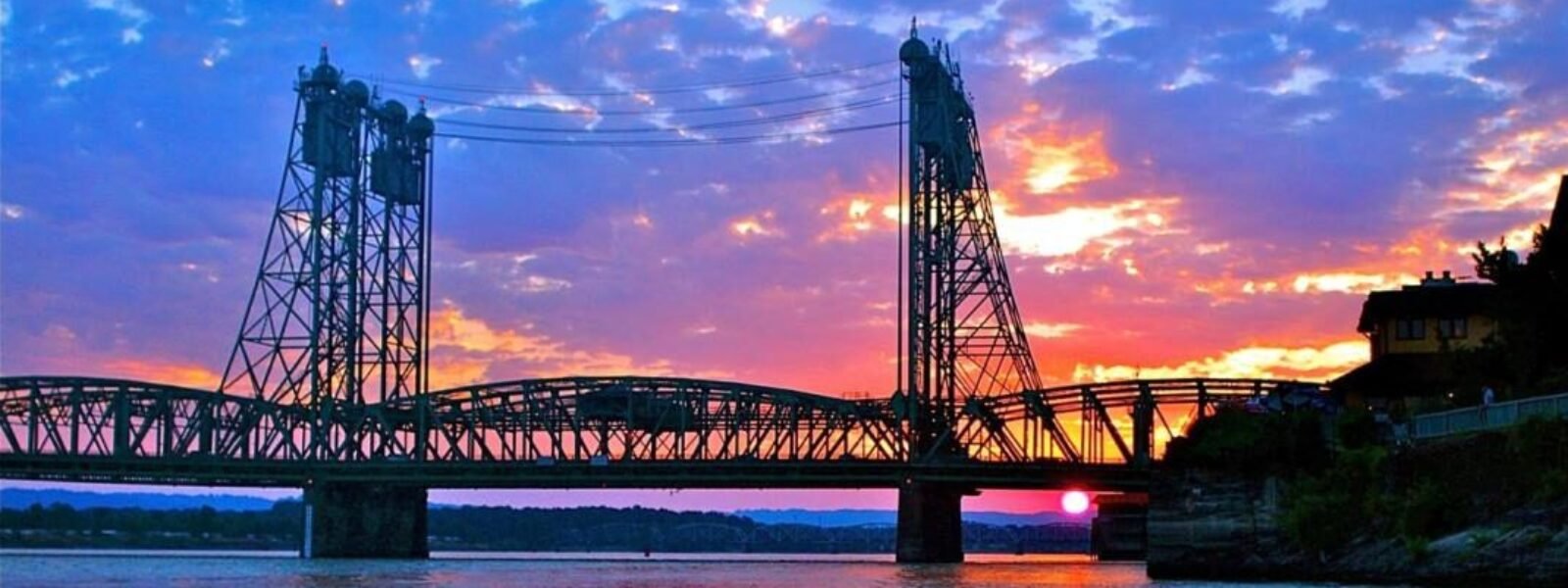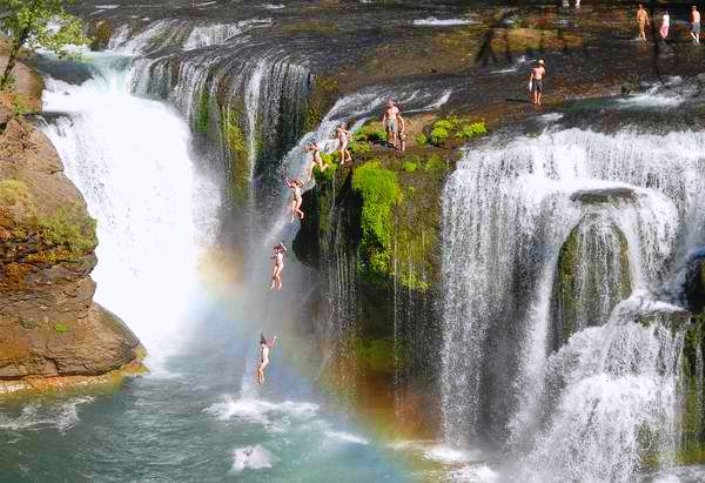
What’s The WEATHER Like in Vancouver, WA? | PNW Weather
Hey there! Today we’re diving into the topic of weather in Vancouver, WA and the surrounding area. We’ll be tackling some common misconceptions and sharing the facts about the climate in this region. The video covers all four seasons, starting with the beautiful blooms of spring, the balmy and enjoyable summers, the picturesque fall with changing leaves, and the intermittent rain and occasional snowfall in the winter. The host also shares her personal opinion, expressing her love for the weather in the Pacific Northwest. So, if you’ve ever wondered what the weather is really like in Vancouver, WA, this article will provide you with all the information you need!
Table of Contents
ToggleOverview of Vancouver, WA Weather
Location and General Climate
Vancouver, Washington is located in the Pacific Northwest region of the United States. It is situated just north of the Columbia River, which acts as a natural border between Washington and Oregon. As a result of its location, Vancouver experiences a moderate, oceanic climate.
Impact of Pacific Ocean on Weather
One of the defining features of Vancouver’s weather is the influence of the nearby Pacific Ocean. The ocean’s currents have a significant impact on the region’s climate, keeping temperatures relatively mild throughout the year. During the summer months, the ocean provides a cooling effect, preventing temperatures from soaring to uncomfortable levels. In the winter, the ocean helps to moderate temperatures, preventing them from dropping too low. This marine influence helps create a generally pleasant and comfortable climate in Vancouver.
Demystifying the Rain Myth
If you ask someone about Vancouver’s weather, they will often mention the rain. While it is true that Vancouver does receive a fair amount of rainfall, the notion that it rains constantly is a misconception. Vancouver actually sees a similar amount of precipitation as many other cities in the Pacific Northwest, such as Seattle. The rainfall is spread fairly evenly throughout the year, with slightly higher amounts in the winter and spring seasons. However, Vancouver also experiences plenty of dry and sunny days, particularly in the summer months. So, while rain is a part of Vancouver’s weather, it is not the predominant feature, and there are many days of sunshine to be enjoyed throughout the year.
Spring Season Weather in Vancouver
General Description of Spring
Spring in Vancouver is a beautiful season characterized by a vibrant burst of colors and new growth. The weather begins to warm up, and the days gradually become longer. The average temperatures in spring range from the mid-40s to the mid-60s Fahrenheit (7-18 degrees Celsius).
Aesthetic Landscape and Blooming Cycle
As spring arrives, the landscape of Vancouver transforms into a picturesque scene with cherry blossoms, tulips, and other colorful flowers in full bloom. The city’s numerous parks and gardens become a haven for nature lovers and photographers. The blooming cycle progresses from crocuses and daffodils in early spring to rhododendrons and roses towards the end of the season. The burst of colors against the backdrop of lush greenery creates a breathtaking sight.
Typical Temperature and Precipitation Rates
Spring in Vancouver can be a bit unpredictable when it comes to rainfall. While there are plenty of sunny and dry days, occasional showers are not uncommon. The average precipitation in spring ranges from 1.5 to 3 inches (4-8 cm) per month. As the season progresses, the temperatures gradually rise, with April being cooler and May reaching warmer temperatures. Light layers and a waterproof jacket are recommended to adapt to the changing weather conditions.
Summer Season Weather in Vancouver
General Description of Summer
Summer in Vancouver is a much-anticipated season as the city comes alive with outdoor activities and events. The average temperatures during this time range from the mid-60s to the mid-70s Fahrenheit (18-24 degrees Celsius). The days are longer, allowing more time for outdoor exploration and enjoyment.
Average Temperature Ranges
Summers in Vancouver are warm and pleasant, thanks to the moderating influence of the nearby Pacific Ocean. While occasional heatwaves can occur, the temperature usually remains comfortable. It is not uncommon for summer temperatures to reach the low 80s Fahrenheit (around 27 degrees Celsius), making it a perfect time to soak up the sun and enjoy outdoor activities.
Outdoor Activities Suitable for Summer
With its scenic beauty and mild climate, Vancouver offers a plethora of outdoor activities during the summer season. You can explore the city’s many parks and trails, go hiking in the nearby mountains, kayak or paddleboard along the Columbia River, or simply relax on one of the beautiful beaches. The city also hosts numerous festivals and events, including outdoor concerts, farmers markets, and food festivals, making it an ideal time to indulge in the local culture and have fun with friends and family.
Fall Season Weather in Vancouver
Description of the Fall Season
Fall in Vancouver is a season of changing colors and crisp, refreshing air. The temperature starts to cool down, and the days gradually become shorter. The average temperatures in fall range from the mid-40s to the mid-60s Fahrenheit (7-18 degrees Celsius).
Unique Features of Fall in Vancouver
One of the most stunning aspects of fall in Vancouver is the vibrant foliage that blankets the city. The leaves of maple, oak, and other deciduous trees turn brilliant shades of red, orange, and yellow, creating a picturesque landscape. The city’s parks and gardens become the perfect spot for leisurely walks while enjoying the autumn colors. Fall also brings the harvest season, with farmers markets offering a bounty of fresh produce and locally grown products.
Festive Activities and Events to Enjoy
Fall is a festive time in Vancouver, with several events and activities to celebrate the season. The city hosts a variety of fall festivals and markets, showcasing local arts, crafts, and delicious food. One popular event is the Apple Festival, where visitors can indulge in apple-themed treats, participate in cider pressing, and enjoy live music. Another highlight is the Vancouver Pumpkin Patch, where families can pick their own pumpkins, go on hayrides, and navigate through corn mazes. These festive activities add a touch of charm to the fall season in Vancouver.
Winter Season Weather in Vancouver
Description of the Winter Season
Winter in Vancouver brings colder temperatures and is characterized by occasional rainfall. The average winter temperatures range from the mid-30s to the mid-40s Fahrenheit (1-7 degrees Celsius).
Typical Snowfall
While Vancouver experiences relatively mild winters compared to other parts of Canada and the northern United States, occasional snowfall is not uncommon. However, the amount of snowfall varies from year to year, and heavy snowfalls are rare. When snow does occur, it creates a magical scene, with the city transforming into a winter wonderland.
Temperature Fluctuations and Rainfall Rates
Winter in Vancouver can be quite variable, with temperatures fluctuating throughout the season. There can be cold snaps, where temperatures drop below freezing, followed by milder periods. Rainfall in winter is typically higher compared to other seasons, with an average of 4-5 inches (10-13 cm) per month. It is advisable to have warm, waterproof clothing and be prepared for the occasional wet and chilly days.
Factors Influencing Weather in Vancouver
Topographical Factors
Vancouver’s topography plays a significant role in shaping its weather patterns. The city is surrounded by mountains, with the Coastal Mountain Range located to the north and the Cascade Mountain Range to the east. These mountains influence the flow of air masses, causing changes in temperature, precipitation, and wind patterns. The mountains also contribute to the city’s scenic beauty, providing a stunning backdrop to Vancouver’s landscape.
Role of Pacific Ocean Currents
The Pacific Ocean currents have a significant impact on Vancouver’s weather. The warm Japan Current, also known as the Kuroshio Current, flows northward along the coast, bringing warmer waters and moderating the temperature. Additionally, the cold California Current flows southward, providing cooler waters and helping to maintain a mild climate in Vancouver. These currents play a key role in creating the distinctive oceanic climate that the city enjoys.
Impact of the Cascade Mountain Range
The Cascade Mountain Range to the east of Vancouver also influences the weather in the region. The mountains act as a barrier to the flow of warm moist air from the south, causing it to rise and cool. This rising air leads to increased precipitation, particularly on the western slopes of the Cascades. As a result, Vancouver experiences more rainfall on its western side, while the eastern part of the city, closer to the mountains, tends to be drier.
Annual Weather Variations in Vancouver
Yearly Temperature Extremes
Vancouver experiences relatively mild temperature extremes compared to many other regions. The record low temperature in the city is around 0 degrees Fahrenheit (-18 degrees Celsius), while the record high temperature is around 105 degrees Fahrenheit (41 degrees Celsius). However, it is important to note that these temperature extremes are rare, and the city typically enjoys a temperate climate year-round.
Rainfall Distribution Throughout the Year
Vancouver’s rainfall is spread fairly evenly throughout the year, with a slightly higher amount during the winter and spring months. The average annual precipitation in the city is around 37 inches (94 cm). This consistent rainfall contributes to the lush greenery and vibrant landscapes that Vancouver is known for.
Interannual Weather Variability in Vancouver
While Vancouver’s weather follows general seasonal patterns, there can be year-to-year variability. Some years may have more rainfall and cooler temperatures, while others may experience drier and warmer conditions. These interannual variations are influenced by larger climate patterns, such as El Niño and La Niña events, which can impact the flow of ocean currents and atmospheric circulation patterns.
Weather-related Activities in Vancouver
Popular Outdoor Activities for Locals
Vancouver’s favorable climate and stunning natural surroundings offer numerous opportunities for outdoor activities year-round. Locals can enjoy hiking and biking in the city’s many parks and trails, fishing in the rivers and lakes, or exploring the nearby mountains. Water activities such as kayaking, paddleboarding, and swimming are also popular during the summer months. Vancouver’s weather encourages an active and healthy lifestyle, with plenty of options for outdoor enthusiasts of all ages.
Tourist Attractions Based on Weather
The weather in Vancouver influences the city’s tourist attractions, catering to both outdoor lovers and those seeking indoor experiences. During the summer, tourists flock to Stanley Park, one of Vancouver’s iconic attractions, to enjoy the picturesque seawall, visit the Vancouver Aquarium, or have picnics in the park. The mild climate also makes Vancouver a popular destination for golf enthusiasts, with numerous golf courses offering stunning views.
During the rainy months, indoor attractions such as museums, art galleries, and theaters become popular choices. The Museum of Anthropology, located at the University of British Columbia, showcases indigenous art and culture, while the Vancouver Art Gallery features a diverse collection of Canadian and international artwork. The weather in Vancouver ensures that there is always something to do, rain or shine.
Significance of Seasonal Activities in Vancouver’s Culture
Vancouver’s weather plays a significant role in shaping the city’s culture and lifestyle. The arrival of spring brings a sense of renewal and a celebration of nature’s beauty. The cherry blossom festival, held annually in April, attracts locals and visitors alike as they gather beneath the blooming trees to appreciate the fleeting beauty of these delicate flowers. Summer heralds a season of outdoor music festivals, farmers markets, and cultural events that reflect the city’s diverse community. Fall offers a chance to indulge in outdoor activities such as apple picking, pumpkin patches, and hiking amidst picturesque fall foliage. Winter brings a festive atmosphere, with holiday markets, ice skating rinks, and the popular Festival of Lights at the VanDusen Botanical Garden. The weather in Vancouver influences the city’s cultural calendar, making each season a unique and cherished experience.
Living in Vancouver: Adapting to the Weather
Clothing and Attire Suited for Vancouver’s Weather
Vancouver’s climate requires a versatile wardrobe to adapt to the changing weather conditions. Layering is key, allowing you to add or remove clothing as the temperature fluctuates throughout the day. For spring and fall, it is advisable to have lightweight jackets, sweaters, and waterproof outerwear. In summer, lightweight and breathable clothing, along with a hat and sunscreen, are essential to protect from the sun’s rays. In winter, warm coats, waterproof boots, and accessories such as hats, scarves, and gloves are necessary to keep cozy in the colder temperatures and occasional snowfall.
Lifestyle Changes Based on Weather
Vancouver’s weather encourages an active and outdoor lifestyle, with residents taking advantage of the city’s natural surroundings year-round. During the warmer months, people spend more time outside, engaging in activities such as hiking, biking, and barbecues in the parks. The longer daylight hours also allow for more after-work outdoor activities. In the colder months, while outdoor activities may be slightly limited, Vancouverites embrace winter sports such as skiing, snowboarding, and ice skating. The city’s vibrant cultural scene also offers indoor entertainment options during any season, including theater performances, art exhibitions, and concerts.
Impact of Weather on Day-to-Day Life
Vancouver’s residents have become accustomed to the city’s weather patterns and adapt their daily routines accordingly. Rain or shine, life goes on in Vancouver. Rainy days are often met with waterproof jackets, umbrellas, and the knowledge that a little rain won’t dampen the spirit of the city. During the sunny and warm months, people take advantage of the weather to enjoy picnics, outdoor sports, and family outings. Vancouver’s weather enhances the quality of life and fosters a sense of appreciation for the city’s natural beauty.
Conclusion
Personal Opinions on Vancouver’s Weather
As someone living in Vancouver, you have likely grown fond of the city’s weather. The moderate climate, with its mild summers and winters, allows for a comfortable and enjoyable lifestyle throughout the year. While the rain can be a topic of conversation, it adds to the lush beauty of the city and creates the ideal environment for the diverse flora and fauna that thrive in Vancouver.
Overall Experience of Weather Across all Four Seasons
Experiencing all four seasons in Vancouver provides a balanced and dynamic climate that continually captivates residents and visitors alike. From the colorful blossoms of spring to the warm days of summer, the vibrant foliage of fall, and the occasional snowfall in winter, each season brings its own unique charm. Vancouver’s weather offers a sense of variety and the opportunity to participate in a wide range of activities year-round.
How the Weather Adds to Vancouver’s Charm
The weather in Vancouver is an integral part of the city’s charm and character. The temperate climate, influenced by the Pacific Ocean and surrounding mountains, creates a captivating backdrop for outdoor adventures and cultural experiences. From enjoying the stunning landscapes to embracing the seasonal festivals and activities, Vancouver’s weather adds to the city’s allure and makes it a truly special place to live or visit.

Top Five PARKS Clark County, WA
You May Also Like

The distance between Downtown Portland and Vancouver, WA
11 January 2024
How Can I Access The Gifford Pinchot National Forest From Vancouver Washington
5 August 2023

